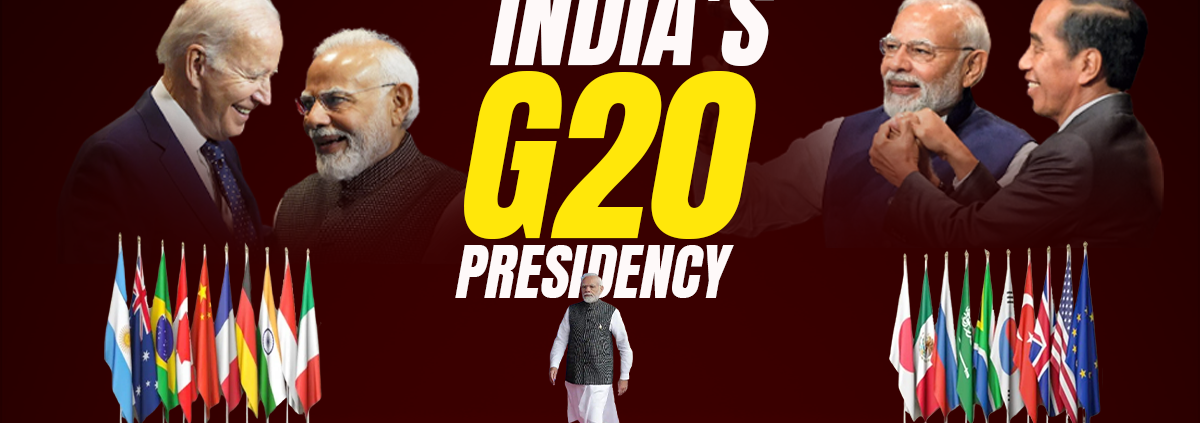On December 1, 2022, India assumed the presidency of the Group of 20, or G20 as it is more popularly known, taking over the baton from Indonesia at a rather tumultuous time, with the global post-pandemic economic recovery still underway. As the intergovernmental forum represents the world’s 20 developed and developing economies, its presidency is a cause for celebration, but it is not without added responsibilities.
India’s G20 Presidency has greater implications than that of predecessors in the last decade, as the country is a top-five global economy. Additionally, India finds itself in a unique, advantageous position in the global geopolitical equation, where there is a growing dichotomy between the East and West. So, India’s G20 presidency bodes well from a geopolitical standpoint, just as it does from an economic one.
Starting strong
India launched its presidency with a lot of pomp and show, with 100 monuments from Kashmir to Kanyakumari lighting up with India’s G20 logo. On the occasion, India’s Prime Minister Narendra Modi underlined the need to de-politicize the global supply of food, fertilizers and medical products, so that geopolitical tensions do not lead to humanitarian crises. It was a resounding statement, specifically against the backdrop of price volatilities due to supply-chain disruptions related to the Russia-Ukraine conflict.
The challenges ahead
The presidency of an important bloc such as the G20 does not come without challenges. Symbolism apart, India will have to come up with substantive responses to complex geopolitical and economic issues. The Government of India has a tough task ahead so far as preparing a comprehensive G20 agenda is concerned.
The impact of the Russian war in Ukraine, western sanctions on energy (that are set to deepen this month), inflation woes, economic downturns, lingering pandemic worries, climate change, and problems caused by the rising pollution are just some of the burning issues that will demand comprehensive attention and solutions.
Outlining India’s approach to G20, Prime Minister Modi has called for international cooperation to deal with global issues, adding that challenges of climate change, terrorism, and pandemics can be solved not by fighting each other but only by acting together. However, achieving across-the-board consensus is increasingly becoming a tall order as the rift between NATO and the East continues to snowball.
On the home front
Externalities aside, India is likely to find itself in a tough spot, considering the domestic problems it faces. Economic distress, social and communal tensions, a highly polarized society, and an increasingly partial and pliant media are just a few of the issues staring the country in its face.
The present Indian government will have to be prepared for far greater scrutiny of its own policies, both economic and social, and the ideology that guides it. No doubt, India’s image has been enhanced, thanks to the G20 presidency, but along with prestige comes an added responsibility to be accountable for its own policies before framing them for a global populace. So, for leaders, the G20 Presidency calls for a reconciliation between “practising” and “preaching”. The success will boil down to India’s ability to strike the right balance.




